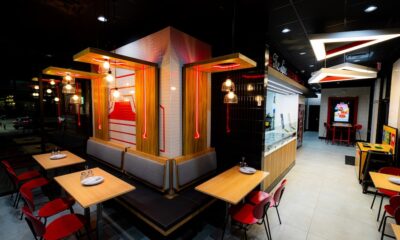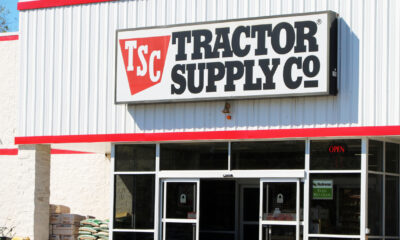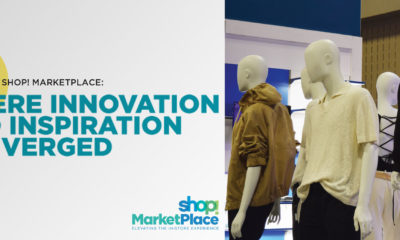Wal-Mart Stores Inc. (Bentonville, Ark.) and eight product manufacturers have begun testing electronic product codes (EPCs) at select Supercenters and one regional distribution center in the Dallas/Fort Worth metroplex.
This pilot is the next step in Wal-Mart’s intention to add radio frequency identification (RFID) to all products, labels and packages.
The trial follows extensive testing at the company’s RFID lab and months of collaborative preparation by Wal-Mart and its suppliers. Field equipment testing has been underway in Texas since mid-month but nothing with an RFID tag was placed on store shelves.
The eight participating manufacturers are The Gillette Co., Johnson & Johnson, Kimberly-Clark, Kraft Foods, Nestle Purina PetCare Co., The Procter & Gamble Co. and Unilever.
Initially, a total of 21 products out of the more than 100,000 products carried in a typical Supercenter will be included in the trial. Cases and pallets containing these products will feature EPCs when delivered to Wal- Mart’s Sanger, Texas, regional distribution center, where RFID readers installed at dock doors will automatically let Wal-Mart’s operations and merchandising teams as well as suppliers know this exact shipment of products has arrived and is inside the building. Cases will then be removed from pallets and processed as usual through the distribution center.
At seven pilot stores in the Dallas/Fort Worth metroplex — specifically in the communities of The Colony, Decatur, Denton, Hickory Creek, Lewisville and Plano — RFID readers at dock doors will replicate the process from the distribution center by automatically confirming that this particular shipment is now in the store’s back room. Individual products will then be stocked as needed.
Advertisement
During the initial test, tagged cases and pallets may be distributed to stores throughout North Texas and South Central Oklahoma, the geographical area served by the Sanger, Texas distribution center. As suppliers expand their efforts to meet the requirements of multiple retailers, it is possible that tagged cases and pallets will arrive at Wal-Mart stores around the country. However, readers will not be installed in stores outside the Dallas/Fort Worth metroplex so those cases and pallets would be handled as usual.
Although Wal-Mart and its suppliers are focusing on case and pallet level tagging, there are instances where a case can also be a product’s individual consumer packaging. The retailer noted that this is especially true for consumer electronics items. In the test beginning today, three products — two HP Photosmart photo printers and an HP ScanJet scanner — may feature RFID tags on the outer packaging consumers see on store shelves. That outer packaging will be marked with an EPCglobal symbol. (EPCglobal is a joint venture of EAN International and the Uniform Code Council to develop standards for RFID technology in the global supply chain based on user needs and business requirements. Wal-Mart is a charter member.)
“It is imperative that we have the merchandise the customer[s] wants to buy when they want to buy it,” said Linda Dillman, Wal-Mart executive vp and chief information officer. “We believe RFID technology is going to help us do that more often and more efficiently. This will help us increase customer satisfaction in the near-term and ultimately play an important role in helping us control costs and continue offering low prices.”
Wal-Mart has set a January 2005 target for its top 100 suppliers to begin placing RFID tags on cases and pallets destined for Wal-Mart stores and Sam’s Club locations in the Dallas/Fort Worth metroplex area. Since the retailer announced that initiative nearly a year ago, 37 additional suppliers have voluntarily chosen to meet that same milestone. The implementation beginning today will pave the way for achieving this goal.

 Headlines1 week ago
Headlines1 week ago
 John Ryan2 weeks ago
John Ryan2 weeks ago
 Headlines7 days ago
Headlines7 days ago
 Headlines2 weeks ago
Headlines2 weeks ago
 Headlines1 week ago
Headlines1 week ago
 Retail Buzz3 days ago
Retail Buzz3 days ago
 Headlines1 week ago
Headlines1 week ago
 Headlines1 week ago
Headlines1 week ago















